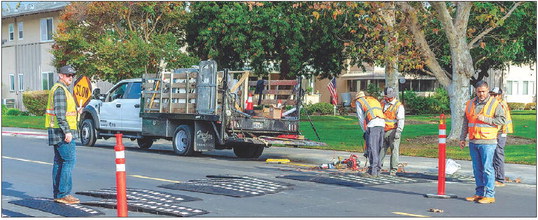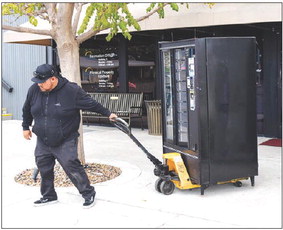GRF is working to temper increase in annual assessments


GRF PRESIDENT’S MESSAGE
by Marsha Gerber
GRF President
Last week, we talked only about the bad news driving what might be a significant assessment increase. Today, let’s discuss what GRF is trying to do about tempering those increases.
The usual route for lowering assessments is to cut costs. That’s not very useful this year. We’re still 13% below our pre-Covid staffing levels. Our 60-year-old infrastructure needs more frequent maintenance. Our extreme past frugality makes delaying purchases ill-advised. The two new buses entering service this fall? They replace 28-year-old predecessors. The Cushman utility cars used by our Service Maintenance workers? We recently retired one after 40 years.
While cutting present costs is difficult, I have asked each GRF standing committee to assess the priority of any spending requests they make. It’s vital to protect resident and employee safety, respond to governmental mandates and maintain the community’s facilities and infrastructure. However, in the coming year, the GRF Board of Directors may determine that enhancements to amenities and creating new amenities to be less vital.
A more promising financial move may come from enhancing the Foundation’s earned income. GRF earns over $1 million annually from leases for the Health Care Center building and the On-Site Real Estate Sales office. This money offsets some of GRF assessment increases.
Anticipating our budget difficulties, in July I commissioned a reformatted Strategic Planning Committee to investigate every revenue option: merchandise sales, fees for non-residents using amenities, advertising and sponsorship opportunities and leased access for vendors to offer resident services on GRF property. While it’s unlikely any of these will dampen this year’s assessment increases, they may well start generating additional income before the end of 2023.
In the tight job market, we are also examining how to use our staff members more efficiently. Here’s one: we’ve estimated that GRF spends over $50,000 annually to greatly exceed state meeting notification laws. For example, commit- tee agendas and minutes do not have to be posted—but GRF does it for 14 or 15 committees, most of which meet every month. GRF standards require board minutes to be posted within two days—state law gives us 30 days. During this time of financial stress, we’ll be assessing how we can best fulfill all legal requirements while using our personnel resources more effectively.
We’re also exploring emergency procedures providing immediate relief in your 2023 assessment. The GRF board is considering a temporary shift in the foundation’s funding of reserves. If approved, GRF would devote a portion of an anticipated 2022 surplus to fund 2023 reserve contributions normally paid by residents’ assessments. Such action could only be temporary, because the funding would have to be restored by residents in coming years. But it is a measure of the creativity your GRF directors may employ to soften the hit to your pocketbooks come Jan. 1.
Next week, I’ll discuss what may be the surprising advantages your household budget possess to cope with disruptions caused by the worldwide financial environment.




